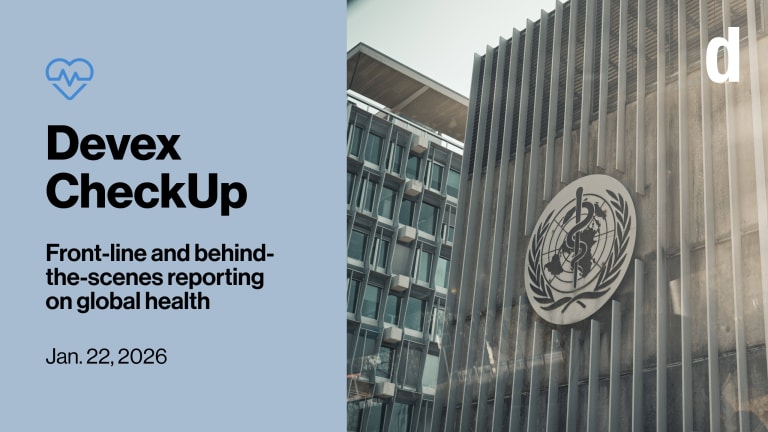
Shortages of health workers in Uganda have fueled the spread of Ebola, said World Health Organization Regional Director for Africa Dr. Matshidiso Moeti during the World Health Summit on Sunday.
The spread of the virus “continued for a couple of months in a peripheral area before it was detected,” she said, adding that this is because there is not enough capacity in these areas for community health workers or nurses to pick up on and report unusual patterns of disease.
Because of this, she argued, the global community should prioritize ensuring countries have adequate levels of health workers as not only important to the country where they reside, but also as a broader public good, as they serve as a base-level network of disease surveillance.
“If outbreaks can continue and spread in a corner of a country — they can easily spread to the rest of the world,” she said.
The Ebola outbreak in Uganda is of a relatively rare strain of the virus, known as the Sudan strain, which does not have an approved vaccine or rapid test, although there are at least six candidate vaccines.
In recent outbreaks of the more common strain, known as Zaire, health workers and other front-line workers have received vaccinations. But this hasn’t been possible in this outbreak and four health workers’ deaths have been reported so far.
The International Rescue Committee reported on Monday there were up to 60 cases, 23 confirmed deaths, and 20 probable Ebola-related deaths.The risk of the virus spreading to neighboring countries is high.
Ugandan President Yoweri Museveni on Saturday announced a 21-day lockdown of two of the districts most heavily impacted, prohibiting movement in and out of these districts and imposing a curfew.

Search for articles
Most Read
- 1
- 2
- 3
- 4
- 5








